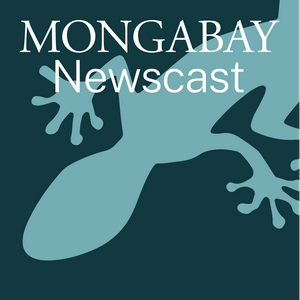How Singapore leads the way in urban-wildlife coexistence
Singapore has come a long way since the 1880s, when only roughly 7% of its native forests remained. Since the 1960s, when the city-state gained independence, it has implemented a number of urban regreening initiatives, and today, nearly 47% of the city is considered green space, providing numerous benefits to human residents and wildlife, like heat mitigation, freshwater conservation and cleanliness, carbon sequestration, coastal climate adaptation, biodiversity protection, and public enjoyment. To discuss his city’s regreening efforts — from the philosophical to the practical applications of methods and mindset shifts that have allowed the city to revitalize its urban wildlife interface — Anuj Jain, director and principal ecologist at the biomimicry consultancy bioSEA and an adviser to BirdLife International, joins Mongabay’s latest podcast. “ Through the greening initiatives in Singapore, it's attracted a lot of species, many of which actually had declined before, some even had gone extinct, or locally extinct,” Jain says. Subscribe to or follow the Mongabay Newscast wherever you listen to podcasts, from Apple to Spotify, and you can also listen to all episodes here on the Mongabay website. Please send questions, feedback or comments to podcast[at]mongabay[dot]com. Image Credit: Supertree grove is part of the Gardens by the Bay (GBTB) urban park in Singapore, covering 105 hectares (260 acres). Image by Tien Tran (tientran0019) via Pixabay (Pixabay Content License). -- Timecodes (00:00) Making the ‘city in a garden’ (10:01) What Singapore looks like today (13:51) The many benefits of urban greenery (20:53) Ecology and biomimicry design (24:30) Cleaner, more plentiful water (25:55) Urban regreening in the Middle East (29:16) To densify, or not to densify? (33:04) Where Singapore still struggles (36:33) Living more harmoniously with wildlife


